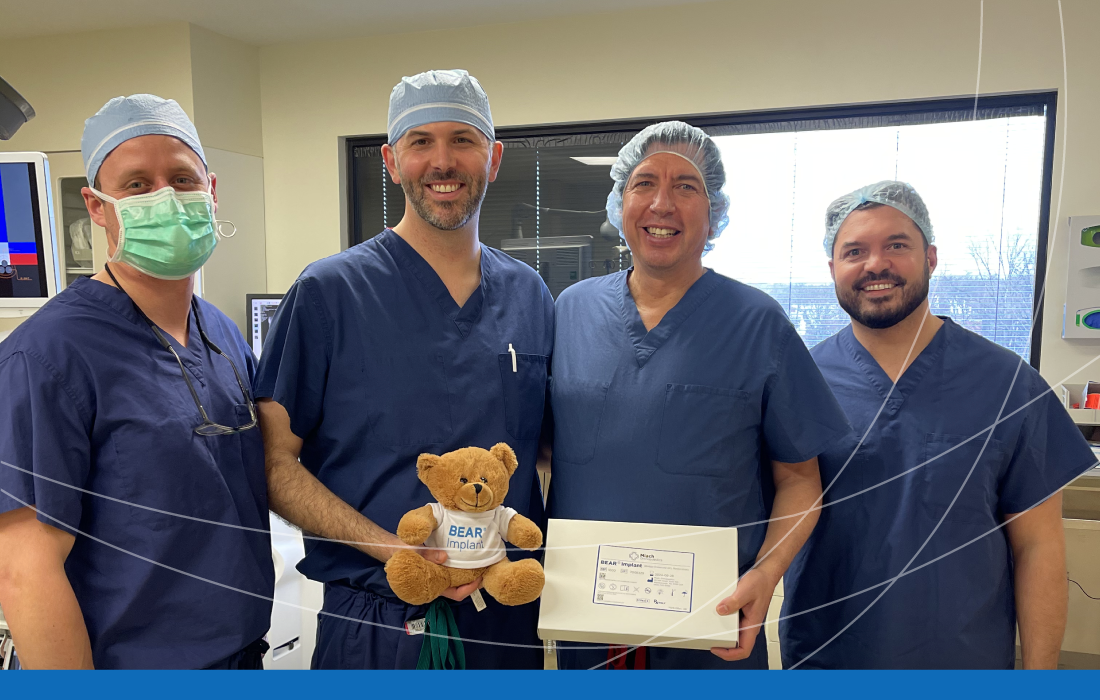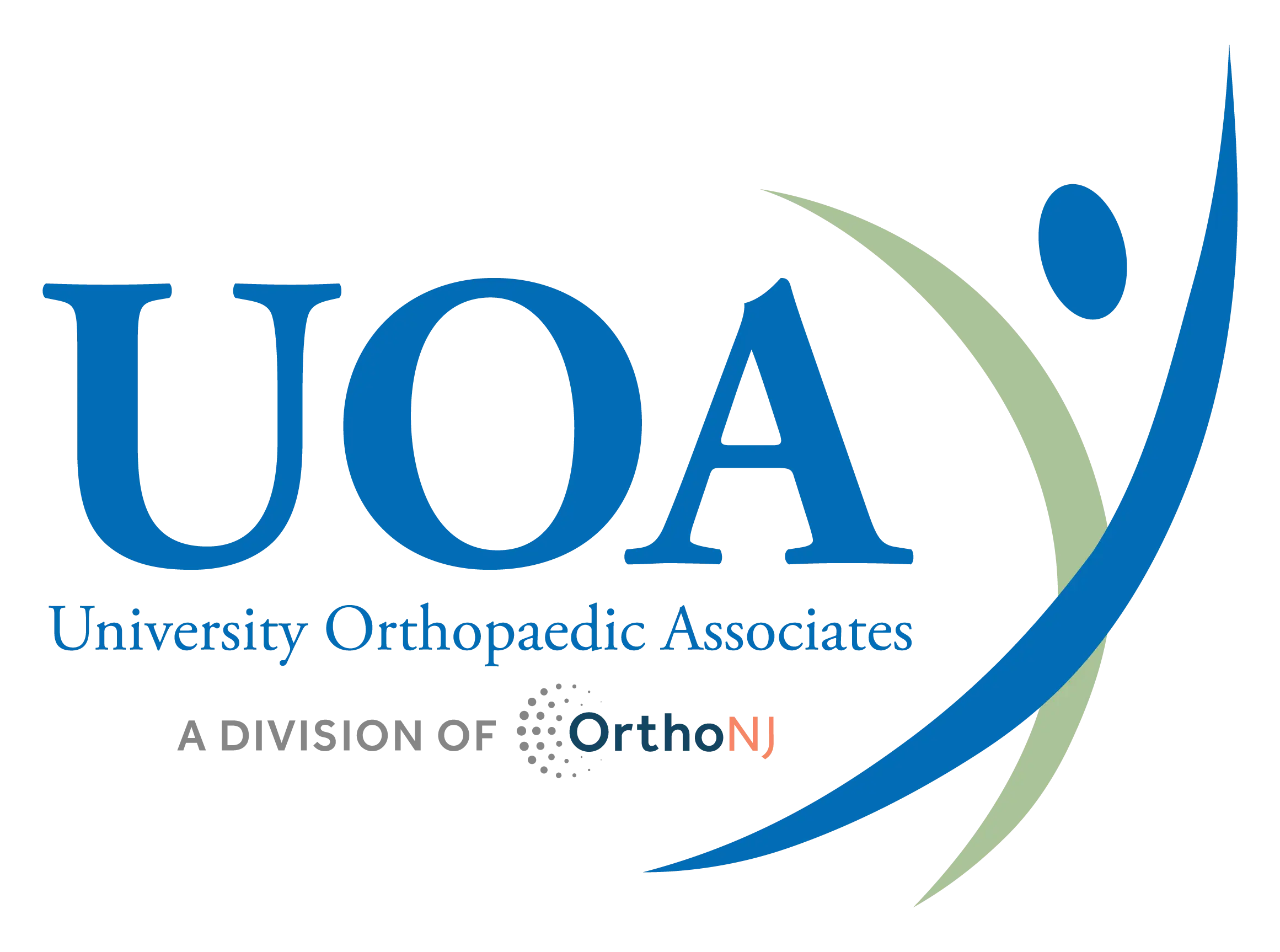UOA Surgeons Perform the First Bridge-Enhanced ACL Restoration (BEAR)

Recently, Dr. Charles J. Gatt Jr. and Dr. Patrick S. Buckley of University Orthopaedic Associates (UOA) successfully performed an innovative anterior cruciate ligament (ACL) repair procedure known as a Bridge-Enhanced ACL Restoration (BEAR). This was the first surgery of its kind performed in our local region, and UOA is excited to introduce this new surgical option to our patients with a torn ACL.
Unlike traditional ACL reconstruction surgeries, which require a tendon graft taken from a patient’s own patellar, quadriceps or hamstring tendons, or from a cadaver donor, the BEAR technique uses a collagen scaffold. This innovative material helps surgeons give a torn ACL the building blocks it needs to heal itself over time.
During the procedure, the surgeon adds the patient’s own blood to the collagen scaffold and then inserts the scaffold between the torn end of the ACL and the bone. This collagen bridge allows a clot to form, enabling the body’s traditional healing process to occur. Gradually, healing factors will reattach the torn ACL, allowing for a natural repair and preservation of a person’s own ACL tissue.
Because the BEAR technique removes the need for a graft, it is more minimally invasive, often reducing the need for a second surgical site. Early patient outcomes are showing great promise, with patients reporting faster recovery of muscle strength and higher satisfaction with returning to sports. This procedure is FDA approved.
To be eligible for a BEAR procedure, patients must be at least 14 years of age, have an MRI-confirmed complete ACL rupture and be within 50 days of their initial injury. The sports medicine specialists at UOA continue to stay on the forefront of orthopaedic care and are excited to offer appropriate patients a new treatment option for ACL tears. You should talk with your surgeon about the pros and cons of an ACL reconstruction vs ACL repair.
If you or a loved one suffered an ACL injury or another orthopedic injury, contact the sports medicine specialists at UOA today.

